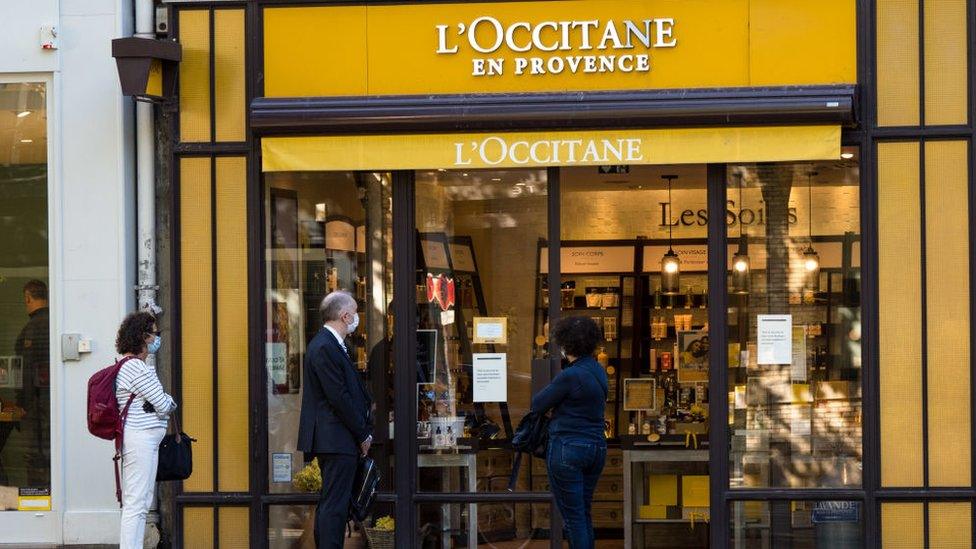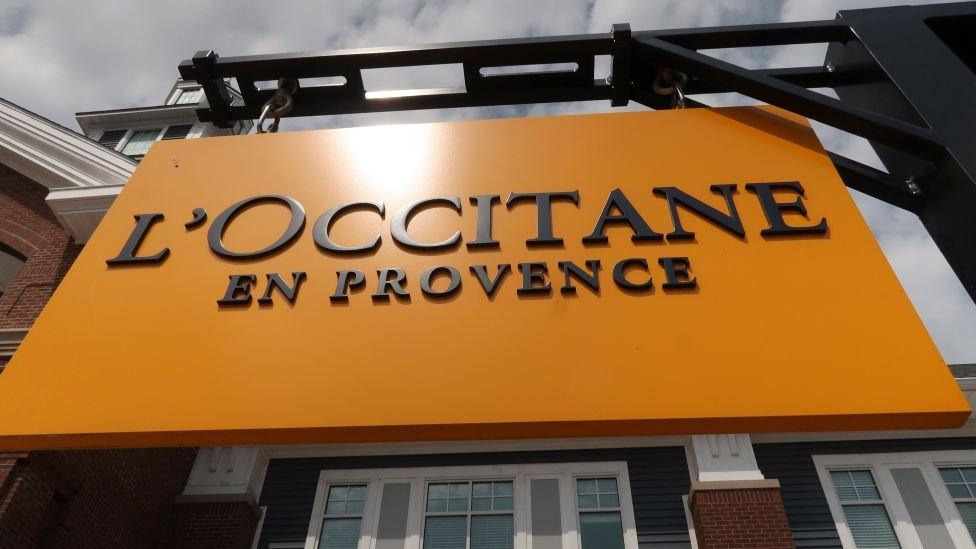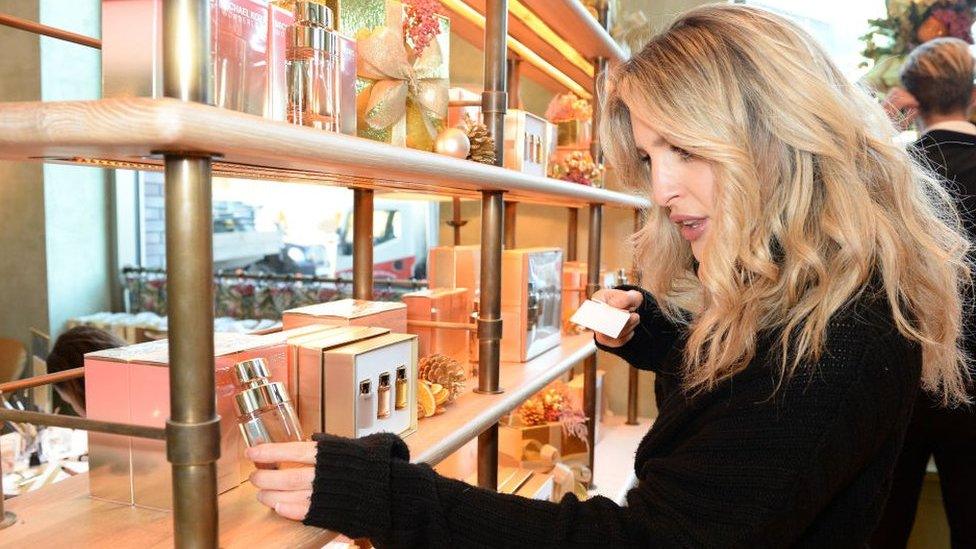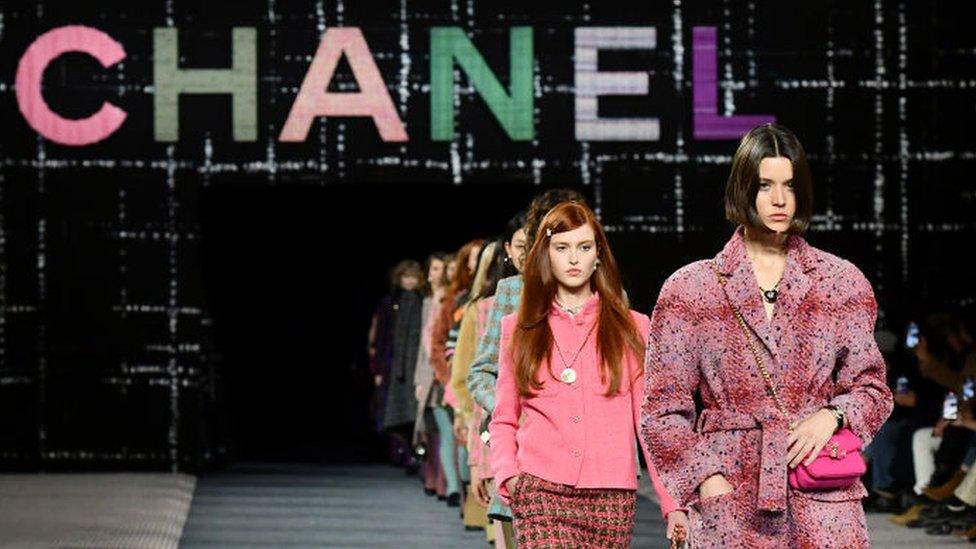Ukraine war: L'Occitane U-turn as it closes Russian shops
- Published

The French cosmetics chain L'Occitane says it will close its Russian shops and website, days after defending its decision to continue trading.
The firm said the move follows the "enormous human suffering and escalating military action in Ukraine".
L'Occitane told the BBC last week it was keeping its shops open to protect staff from potential "retaliation".
Some customers had criticised the company for its decision and called for a boycott of the brand.
Its products are sold at more than 3,085 retail outlets worldwide and had sales of €1.5bn (£1.3bn) last year.
Last week the firm told the BBC it had discussed closing its Russian stores "at length" but said it had not because it wanted to protect staff from potential "retaliation".
The cosmetics firm, which has spas and stores in Russian cities including Moscow and St Petersburg, originally said it could not take the "risk" of closing its shops.
But in a statement issued on Friday evening, L'Occitane said the decision to shut its Russian operation had been approved by the company's board of directors.
"Given the enormous human suffering being caused by escalating military action in Ukraine and to protect our employees worldwide from potential public aggression, we have decided to close our own stores and e-commerce websites in Russia," the statement said.
Hundreds of international brands including L'Oreal and Estee Lauder have already closed shops and ceased online sales in Russia in protest at the war in Ukraine.
Tweeting a picture of a L'Occitane product one customer said: "I've used this cream for years, never again. Even if they back out, they've showed their corporate integrity."
Allow X content?
This article contains content provided by X. We ask for your permission before anything is loaded, as they may be using cookies and other technologies. You may want to read X’s cookie policy, external and privacy policy, external before accepting. To view this content choose ‘accept and continue’.
A number of firms are still listed as still operating in Russia, external by Professor Jeffrey Sonnenfeld at Yale University's School of Management.
Among them are the French energy giant EDF, the UAE's Emirates airline, and China's Lenovo computer brand.
Around 600 big firms have pulled out of Russia or suspended sales since it invaded, including Starbucks, Coca Cola, Levi's and Apple.

Other international outlets still open in Russia have said they are not able to shut stores due to complex franchise deals preventing them from withdrawing. Burger King and the hotel groups Marriott and Accor are among the firms restricted by these arrangements.
On Tuesday, some independent Nike stores were found to be operating in Russia over a week after the sportswear brand said it was temporarily closing all its shops in the country.
Professor Vanessa Burbano, from Columbia Business School in the US, said that consistency between claims and actions is important for brands with operations in Russia.
"Customers and employees do pay attention to which companies are first in making these kinds of commitments and which firms don't go as far," Prof Burbano said.
"The risk of companies making claims that may not be perceived as consistent with their actions is that they could be seen as a green-washing in the Ukraine context which would be bad for their reputation."
Related topics
- Published11 March 2022

- Published6 April 2022
